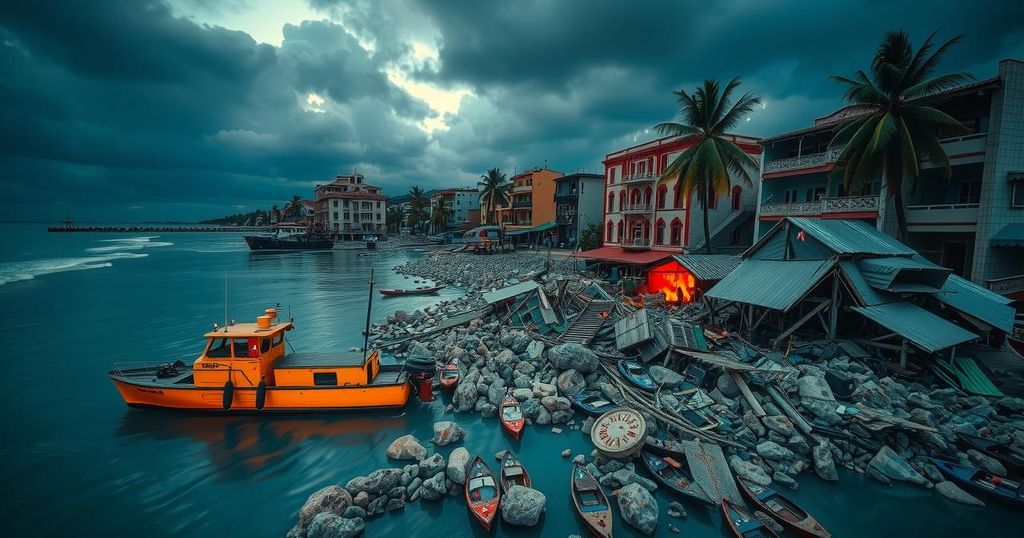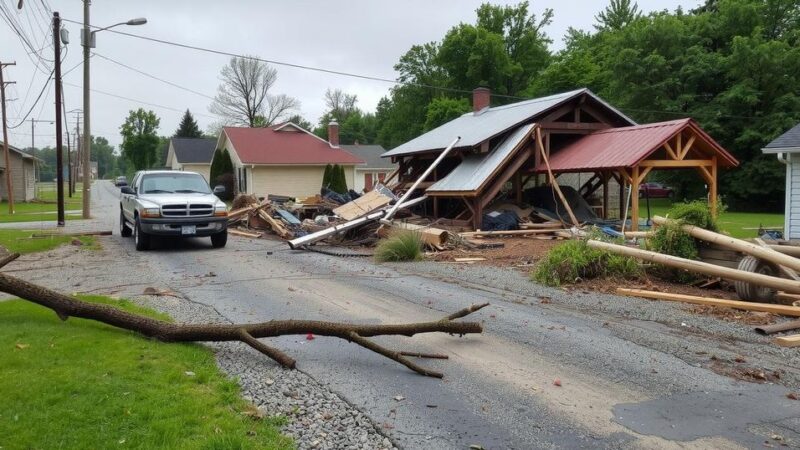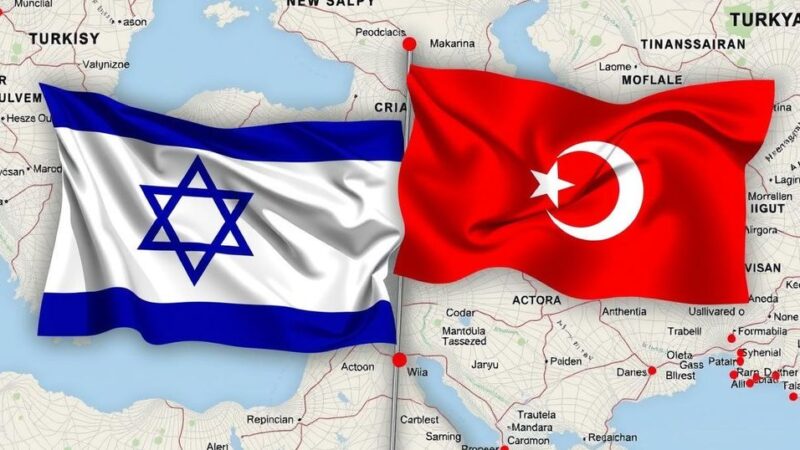A 6.8 magnitude earthquake struck eastern Cuba on Sunday, following hurricanes and widespread blackouts. The quake, felt across major cities, left residents anxious but initial reports indicated no significant damage or injuries. This seismic event exacerbates existing challenges for the island, which has recently endured hurricanes and a severe energy crisis, leading to protests among citizens.
On Sunday, eastern Cuba experienced a significant earthquake, registering a preliminary magnitude of 6.8, as reported by the U.S. Geological Survey. The quake’s epicenter was situated approximately 25 miles south of Bartolome Maso, affecting various cities, including Santiago de Cuba, Holguin, and Guantanamo. Following this tumultuous event, local media in Jamaica indicated that tremors were also felt there. Fortunately, initial reports indicated no major damage or injuries within Cuba, although residents expressed concerns and unease over the intensity of the quake. In Santiago, Cuba’s second-largest city, 76-year-old resident Yolanda Tabío recounted the panic that enveloped the area, as citizens vacated buildings and congregated outdoors while still recovering from the recent hurricanes and power outages. “You had to see how everything was moving, the walls, everything,” she reported to The Associated Press, affirming the quake’s physical impact. Other residents voiced their alarm, stating they heard screams and noted the quake’s duration. Additionally, social media posts from the town of Pilon revealed minor structural damage, highlighting the vulnerability of the island’s aging infrastructure. This earthquake occurs amid a trying period for Cuba, having been recently battered by Hurricane Rafael, a Category 3 storm that ravaged the western region with strong winds, resulting in widespread power outages and significant destruction. Many residents remain without power, as large portions of the island; it has struggled with the aftermath of previous hurricanes and ongoing energy crises leading to sustained blackouts over recent weeks. The cumulative effects of these adversities have sparked small-scale protests on the island, reflecting growing frustration among the populace.
Cuba has been experiencing a series of natural disasters and infrastructural challenges that have compounded the struggles of its citizens. The recent hurricane season has been particularly devastating, with Hurricane Rafael causing extensive damage and contributing to island-wide power outages. Coupled with an ongoing energy crisis, these issues have heightened social discontent, leading to protests. The recent 6.8 magnitude earthquake adds to the country’s distress, occurring shortly after these storms and increasing fears among residents already facing hardships.
In summary, the recent earthquake in eastern Cuba serves as a stark reminder of the vulnerabilities faced by the island amid a sequence of natural disasters and an ongoing energy crisis. The event has left residents shaken and concerned about their safety and the integrity of their homes. As Cuba grapples with the aftermath of hurricanes and blackouts, the potential impact of further seismic activity remains a pressing concern for its citizens, compounding the challenges they face during this challenging period.
Original Source: www.news5cleveland.com







